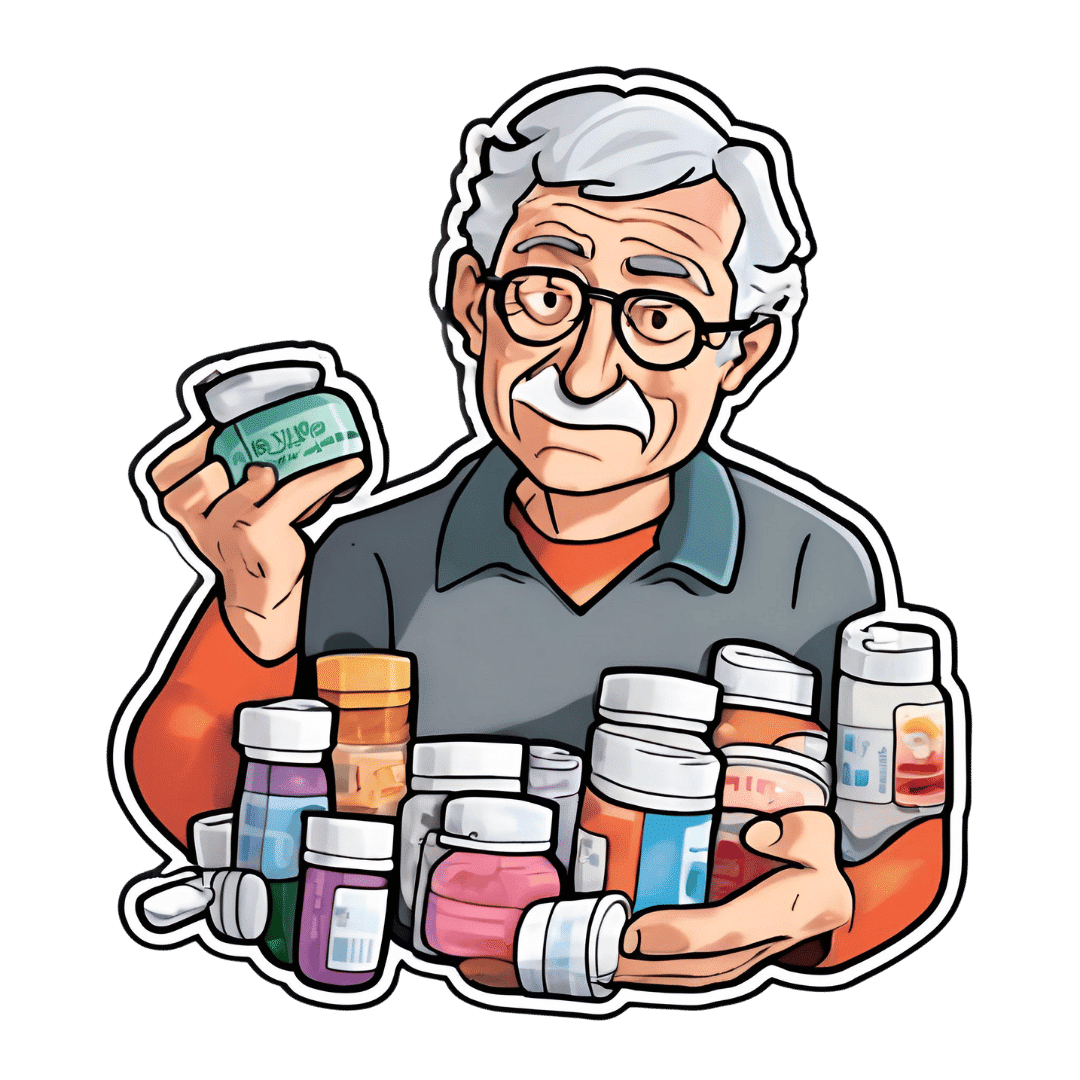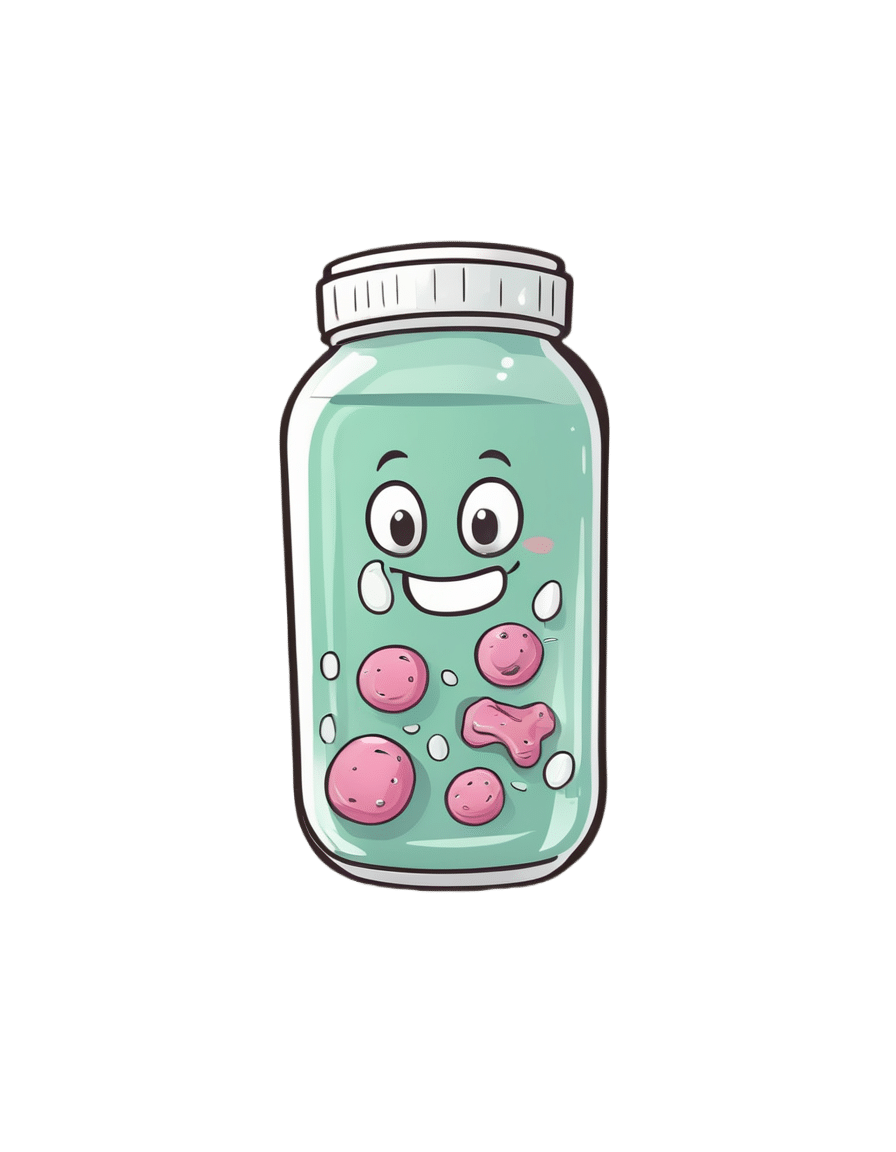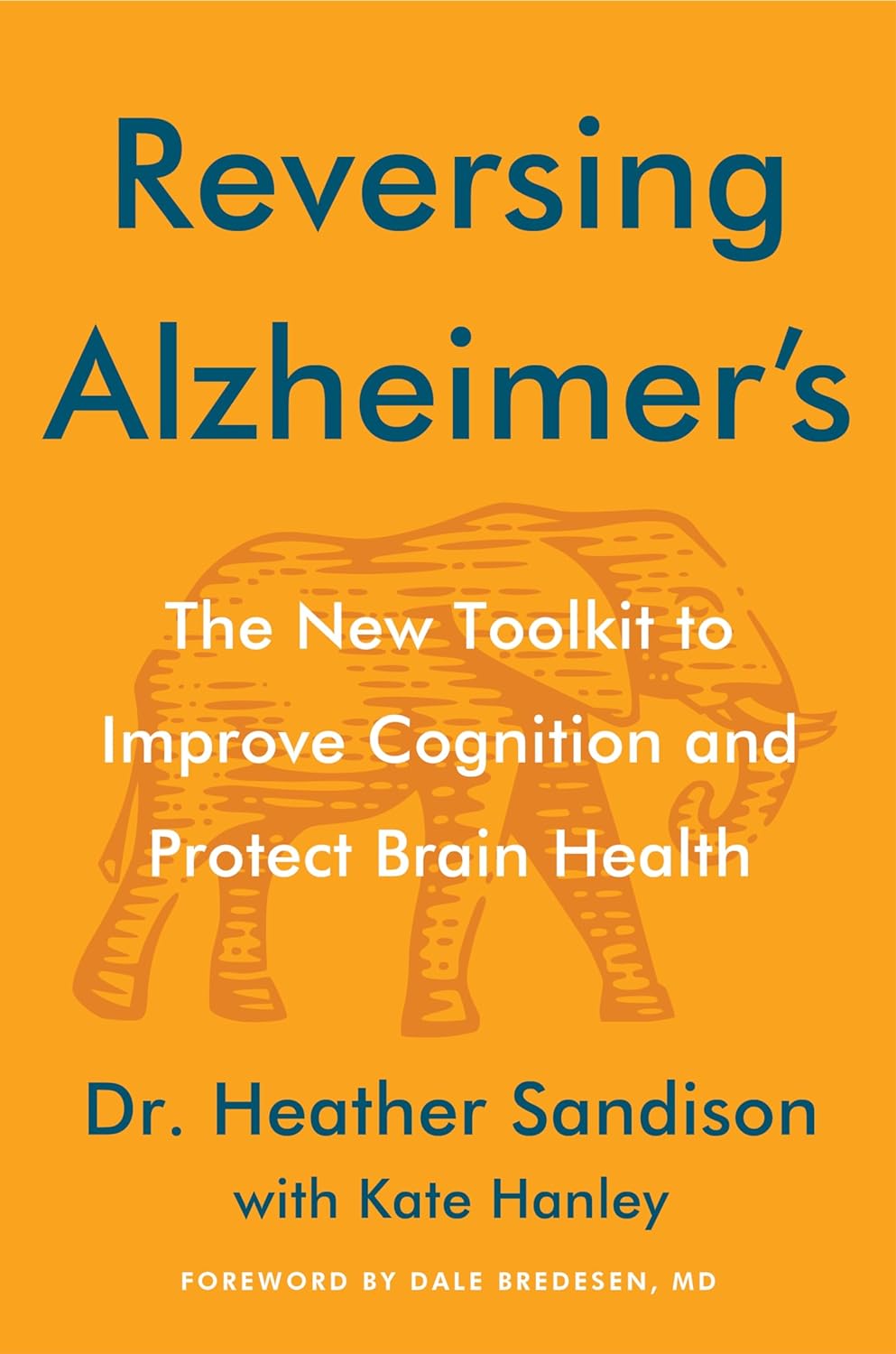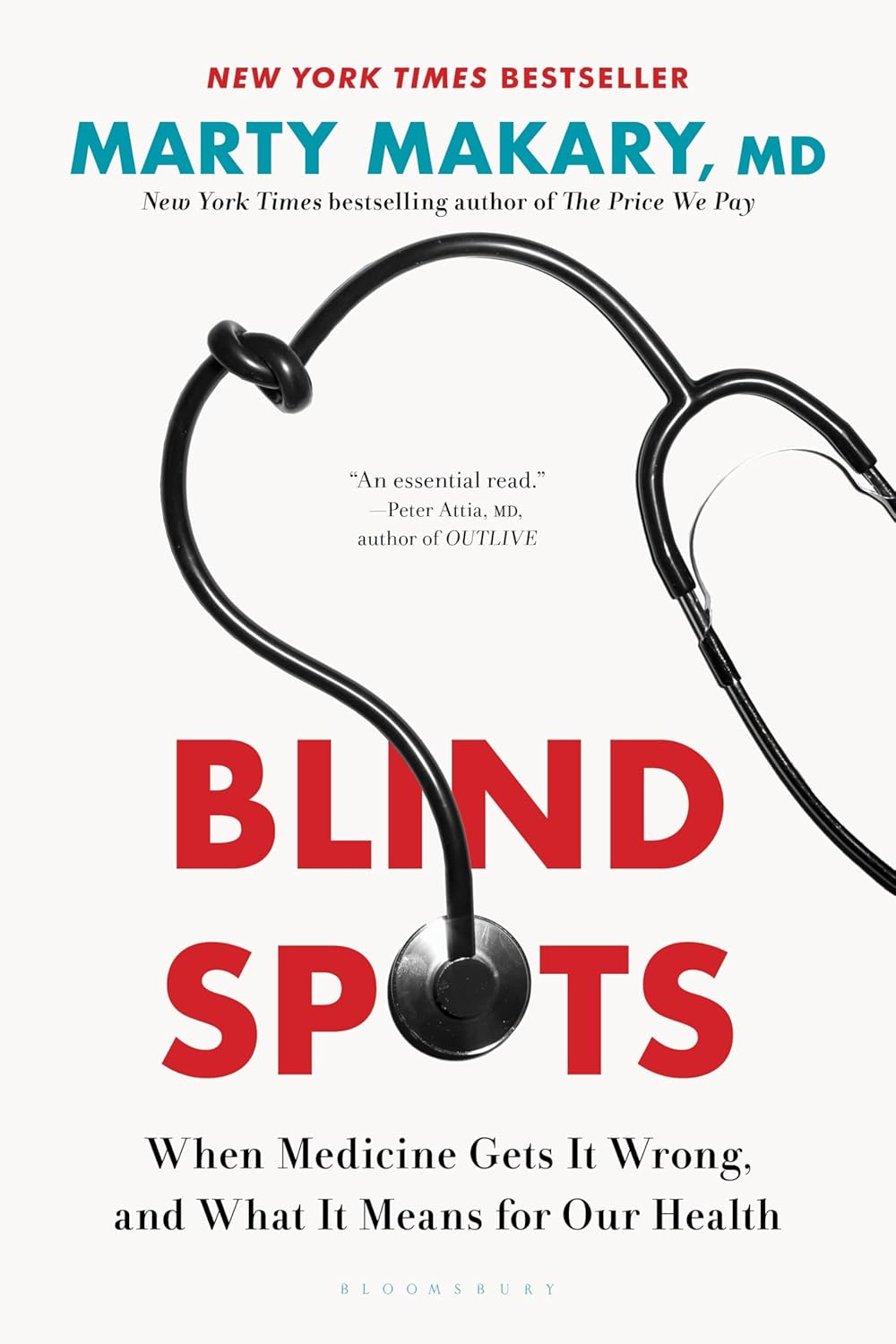
Psychology Sunday Rewind: Healing Family Rifts
10almonds is reader-supported. We may, at no cost to you, receive a portion of sales if you purchase a product through a link in this article.
Estrangement, And How To Heal It
The following article was first published a little under six months ago, and it proved to be our most popular “Psychology Sunday” article of the year.
We republish it today, in case it might also be of value to readers who have joined us since
Having written before about how deleterious to the health loneliness and isolation can be, and what things can be done about it, we had a request to write about…
❝Reconciliation of relationships in particular estrangement mother adult daughter❞
And, this is not only an interesting topic, but a very specific one that affects more people than is commonly realized!
In fact, a recent 800-person study found that more than 43% of people experienced family estrangement of one sort or another, and a more specific study of more than 2,000 mother-child pairs found that more than 11% of mothers were estranged from at least one adult child.
So, if you think of the ten or so houses nearest to you, probably at least one of them contains a parent estranged from at least one adult child. Maybe it’s yours. Either way, we hope this article will give you some pause for thought.
Which way around?
It makes a difference to the usefulness of this article whether any given reader experiencing estrangement is the parent or the adult child. We’re going to assume the reader is the parent. It also makes a difference who did the estranging. That’s usually the adult child.
So, we’re broadly going to write with that expectation.
Why does it happen?
When our kids are small, we as parents hold all the cards. It may not always feel that way, but we do. We control our kids’ environment, we influence their learning, we buy the food they eat and the clothes they wear. If they want to go somewhere, we probably have to take them. We can even set and enforce rules on a whim.
As they grow, so too does their independence, and it can be difficult for us as parents to relinquish control, but we’re going to have to at some point. Assuming we are good parents, we just hope we’ve prepared them well enough for the world.
Once they’ve flown the nest and are living their own adult lives, there’s an element of inversion. They used to be dependent on us; now, not only do they not need us (this is a feature not a bug! If we have been good parents, they will be strong without us, and in all likelihood one day, they’re going to have to be), but also…
We’re more likely to need them, now. Not just in the “oh if we have kids they can look after us when we’re old” sense, but in that their social lives are growing as ours are often shrinking, their family growing, while ours, well, it’s the same family but they’re the gatekeepers to that now.
If we have a good relationship, this goes fine. However, it might only take one big argument, one big transgression, or one “final straw”, when the adult child decides the parent is more trouble than they’re worth.
And, obviously, that’s going to hurt. But it’s pretty much how it pans out, according to studies:
Here be science: Tensions in the Parent and Adult Child Relationship: Links to Solidarity and Ambivalence
How to fix it, step one
First, figure out what went wrong.
Resist any urge to protect your own feelings with a defensive knee-jerk “I don’t know; I was a good, loving parent”. That’s a very natural and reasonable urge and you’re quite possibly correct, but it won’t help you here.
Something pushed them away. And, it will almost certainly have been a push factor from you, not a pull factor from whoever is in their life now. It’s easy to put the blame externally, but that won’t fix anything.
And, be honest with yourself; this isn’t a job interview where we have to present a strength dressed up as a “greatest weakness” for show.
You can start there, though! If you think “I was too loving”, then ok, how did you show that love? Could it have felt stifling to them? Controlling? Were you critical of their decisions?
It doesn’t matter who was right or wrong, or even whether or not their response was reasonable. It matters that you know what pushed them away.
How to fix it, step two
Take responsibility, and apologize. We’re going to assume that your estrangement is such that you can, at least, still get a letter to them, for example. Resist the urge to argue your case.
Here’s a very good format for an apology; please consider using this template:
The 10-step (!) apology that’s so good, you’ll want to make a note of it
You may have to do some soul-searching to find how you will avoid making the same mistake in the future, that you did in the past.
If you feel it’s something you “can’t change”, then you must decide what is more important to you. Only you can make that choice, but you cannot expect them to meet you halfway. They already made their choice. In the category of negotiation, they hold all the cards now.
How to fix it, step three
Now, just wait.
Maybe they will reply, forgiving you. If they do, celebrate!
Just be aware that once you reconnect is not the time to now get around to arguing your case from before. It will never be the time to get around to arguing your case from before. Let it go.
Nor should you try to exact any sort of apology from them for estranging you, or they will at best feel resentful, wonder if they made a mistake in reconnecting, and withdraw.
Instead, just enjoy what you have. Many people don’t get that.
If they reply with anger, maybe it will be a chance to reopen a dialogue. If so, family therapy could be an approach useful for all concerned, if they are willing. Chances are, you all have things that you’d all benefit from talking about in a calm, professional, moderated, neutral environment.
You might also benefit from a book we reviewed previously, “Parent Effectiveness Training”. This may seem like “shutting the stable door after the horse has bolted”, but in fact it’s a very good guide to relationship dynamics in general, and extensively covers relations between parents and adult children.
If they don’t reply, then, you did your part. Take solace in knowing that much.
Some final thoughts:
At the end of the day, as parents, our kids living well is (hopefully) testament to that we prepared them well for life, and sometimes, being a parent is a thankless task.
But, we (hopefully) didn’t become parents for the plaudits, after all.
Don’t Forget…
Did you arrive here from our newsletter? Don’t forget to return to the email to continue learning!
Recommended
Learn to Age Gracefully
Join the 98k+ American women taking control of their health & aging with our 100% free (and fun!) daily emails:

Are You Taking PIMs?
10almonds is reader-supported. We may, at no cost to you, receive a portion of sales if you purchase a product through a link in this article.
Getting Off The Overmedication Train
The older we get, the more likely we are to be on more medications. It’s easy to assume that this is because, much like the ailments they treat, we accumulate them over time. And superficially at least, that’s what happens.
And yet, almost half of people over 65 in Canada are taking “potentially inappropriate medications”, or PIMs—in other words, medications that are not needed and perhaps harmful. This categorization includes medications where the iatrogenic harms (side effects, risks) outweigh the benefits, and/or there’s a safer more effective medication available to do the job.
You may be wondering: what does this mean for the US?
Well, we don’t have the figures for the US because we’re working from Canadian research today, but given the differences between the two country’s healthcare systems (mostly socialized in Canada and mostly private in the US), it seems a fair hypothesis that if it’s almost half in Canada, it’s probably more than half in the US. Socialized healthcare systems are generally quite thrifty and seek to spend less on healthcare, while private healthcare systems are generally keen to upsell to new products/services.
The three top categories of PIMs according to the above study:
- Gabapentinoids (anticonvulsants also used to treat neuropathic pain)
- Proton pump inhibitors (PPIs)
- Antipsychotics (especially, to people without psychosis)
…but those are just the top of the list; there are many many more.
The list continues: opioids, anticholinergics, sulfonlyurea, NSAIDs, benzodiazepines and related rugs, and cholinesterase inhibitors. That’s where the Canadian study cuts off (although it also includes “others” just before NSAIDs), but still, you guessed it, there are more (we’re willing to bet statins weigh heavily in the “others” section, for a start).
There are two likely main causes of overmedication:
The side effect train
This is where a patient has a condition and is prescribed drug A, which has some undesired side effects, so the patient is prescribed drug B to treat those. However, that drug also has some unwanted side effects of its own, so the patient is prescribed drug C to treat those. And so on.
For a real-life rundown of how this can play out, check out the case study in:
The Hidden Complexities of Statins and Cardiovascular Disease (CVD)
The convenience factor
No, not convenient for you. Convenient for others. Convenient for the doctor if it gets you out of their office (socialized healthcare) or because it was easy to sell (private healthcare). Convenient for the staff in a hospital or other care facility.
This latter is what happens when, for example, a patient is being too much trouble, so the staff give them promazine “to help them settle down”, notwithstanding that promazine is, besides being a sedative, also an antipsychotic whose common side effects include amenorrhea, arrhythmias, constipation, drowsiness and dizziness, dry mouth, impotence, tiredness, galactorrhoea, gynecomastia, hyperglycemia, insomnia, hypotension, seizures, tremor, vomiting and weight gain.
This kind of thing (and worse) happens more often towards the end of a patient’s life; indeed, sometimes precipitating that end, whether you want it or not:
Mortality, Palliative Care, & Euthanasia
How to avoid it
Good practice is to be “open-mindedly skeptical” about any medication. By this we mean, don’t reject it out of hand, but do ask questions about it.
Ask your prescriber not only what it’s for and what it’ll do, but also what the side effects and risks are, and an important question that many people don’t think to ask, and for which doctors thus don’t often have a well-prepared smooth-selling reply, “what will happen if I don’t take this?”
And look up unbiased neutral information about it, from reliable sources (Drugs.com and The BNF are good reference guides for this—and if it’s important to you, check both, in case of any disagreement, as they function under completely different regulatory bodies, the former being American and the latter being British. So if they both agree, it’s surely accurate, according to best current science).
Also: when you are on a medication, keep a journal of your symptoms, as well as a log of your vitals (heart rate, blood pressure, weight, sleep etc) so you know what the medication seems to be helping or harming, and be sure to have a regular meds review with your doctor to check everything’s still right for you. And don’t be afraid to seek a second opinion if you still have doubts.
Want to know more?
For a more in-depth exploration than we have room for here, check out this book that we reviewed not long back:
To Medicate or Not? That is the Question! – by Dr. Asha Bohannon
Take care!
Share This Post

Do Probiotics Work For Weight Loss?
10almonds is reader-supported. We may, at no cost to you, receive a portion of sales if you purchase a product through a link in this article.
It’s Q&A Day at 10almonds!
Have a question or a request? We love to hear from you!
In cases where we’ve already covered something, we might link to what we wrote before, but will always be happy to revisit any of our topics again in the future too—there’s always more to say!
As ever: if the question/request can be answered briefly, we’ll do it here in our Q&A Thursday edition. If not, we’ll make a main feature of it shortly afterwards!
So, no question/request too big or small
❝Can you talk about using probiotics for weight loss? Thanks❞
Great question! First, a quick catch-up:
How Much Difference Do Probiotic Supplements Make, Really?
Our above-linked article covers a number of important benefits of probiotic supplements, but we didn’t talk about weight loss at all. So let’s examine whether probiotics are useful for weight loss.
Up-front summary: the science is unclear
This 2021 systematic review found that they are indeed very effective:
❝The intake of probiotics or synbiotics could lead to significant weight reductions, either maintaining habitual lifestyle habits or in combination with energy restriction and/or increased physical activity for an average of 12 weeks.
Specific strains belonging to the genus Lactobacillus and Bifidobacterium were the most used and those that showed the best results in reducing body weight.
Both probiotics and synbiotics have the potential to help in weight loss in overweight and obese populations.❞
This slightly older (2015) systematic review and meta-analysis found the opposite:
❝Collectively, the RCTs examined in this meta-analysis indicated that probiotics have limited efficacy in terms of decreasing body weight and BMI and were not effective for weight loss.❞
Source: Probiotics for weight loss: a systematic review and meta-analysis
And in case that’s not balanced enough, this 2020 randomized controlled trial got mixed results:
❝Regression analysis performed to correlate abundance of species following supplementation with body composition parameters and biomarkers of obesity found an association between a decrease over time in blood glucose and an increase in Lactobacillus abundance, particularly in the synbiotic group.
However, the decrease over time in body mass, BMI, waist circumstance, and body fat mass was associated with a decrease in Bifidobacterium abundance.❞
Source: Effects of Synbiotic Supplement on Human Gut Microbiota, Body Composition and Weight Loss in Obesity
Summary
Probiotics may or may not work for weight loss.
In all likelihood, it depends on the blend of cultures contained in the supplement. It’s possible that Lactobacillus is more beneficial for weight loss than Bifidobacterium, which latter may actually reduce weight loss.
Or it might not, because that was just one study and correlation ≠ causation!
We’d love to give you a hard-and-fast answer, but if the data doesn’t support a hard-and-fast answer, we’re not going to lie to you.
What we can say for sure though is that probiotics come with very many health benefits, so whether or not weight loss is one of them, they’re a good thing to have for most people.
Some further articles that may interest you:
- How Much Difference Do Probiotic Supplements Make, Really? ← the aforementioned article
- Making Friends With Your Gut (You Can Thank Us Later) ← gut health 101
- Burn! How To Boost Your Metabolism ← these things can help change your metabolic base rate, which is highly relevant to weight loss
- How To Do HIIT (Without Wrecking Your Body) ←unlike most forms of exercise, which cause the body to slow the metabolism afterwards to compensate, high-intensity interval training results in an increased metabolic rate (so generally: fat-burning) for several hours after training.
Take care!
Share This Post

Reversing Alzheimer’s – by Dr. Heather Sandison
10almonds is reader-supported. We may, at no cost to you, receive a portion of sales if you purchase a product through a link in this article.
The title here is bold, isn’t it? But, if the studies so far are anything to go by, she is, indeed, reversing Alzheimer’s. By this we mean: her Alzheimer’s patients have enjoyed a measurable reversal of the symptoms of cognitive decline (this is not something that usually happens).
The science here is actually new, and/but references are given aplenty, including Dr. Sandison’s own research and others—there’s a bibliography of several hundred papers, which we love to see.
Dr. Sandison’s approach is of course multivector, but is far more lifestyle medicine than pills, with diet in particular playing a critical role. Indeed, it’s worth mentioning that she is a naturopathic doctor (not an MD), so that is her focus—though she’s had a lot of MDs looking in on her work too, as you may see in the book. She has found best results in a diet low in carbs, high in healthy fats—and it bears emphasizing, healthy ones. Many other factors are also built in, but this is a book review, not a book summary.
Nor does the book look at diet in isolation; other aspects of lifestyle are also taken into account, as well as various medical pathways, and how to draw up a personalized plan to deal with those.
The book is written with the general assumption that the reader is someone with increased Alzheimer’s risk wishing to reduce that risk, or the relative of someone with Alzheimer’s disease already. However, the information within is beneficial to all.
The style is on the hard end of pop-science; it’s written for the lay reader, but will (appropriately enough) require active engagement to read effectively.
Bottom line: if Alzheimer’s is something that affects or is likely to affect you (directly, or per a loved one), then this is a very good book to have read
Click here top check out Reversing Alzheimer’s, and learn how to do it!
Share This Post
Related Posts

The Keys to Good Mental Wellbeing
10almonds is reader-supported. We may, at no cost to you, receive a portion of sales if you purchase a product through a link in this article.
The Nine Keys To Good Mental Wellbeing
Today’s main feature is a bit “pop psychology”, but it has its underpinnings in actual psychology, and is especially useful if approached from that angle.
What it’s most popularly enjoyed as:
- A personality-typing system.
- People love little quizzes and identifiers and such.
What it’s actually really useful as:
- A tool for understanding why people (including ourselves) are the way we are
- A foundational knowledge for living better ourselves, and helping others too
This stems from the fairly simple principle, uncontroversial in psychology:
- We have needs, desires, and aversions
- We act in a way that tries to get our needs met and avoid suffering
- Thus: Need/Fear → Motivation → Action
The Enneagram
The Enneagram (ἐννέα = “nine” in Ancient Greek) system posits that we each have one fundamental need/fear (from a list of nine) that’s strongest for us. A deep-seated insecurity/longing, that we’ll go to almost any lengths to try to meet. Sometimes, in good ways, sometimes, bad.
The Nine Basic Fears/Insecurities, And Their Corresponding Needs/Desires:
- Fear of being a fundamentally bad, wrong person / Need to be good and correct
- Fear of being fundamentally unloveable / Need to be loved
- Fear of being fundamentally worthless / Need to be valued
- Fear of being like everyone else / Need to be different
- Fear of being useless / Need to be useful
- Fear of being outcast / Need to have a set place in the group
- Fear of missing out / Need to experience things
- Fear of being hurt or controlled / Need to be in control
- Fear of conflict / Need to be at peace
Of course, most of us have most of these fears/needs to some extent, though usually one will stand out—especially if we aren’t managing it well. The less healthy our coping mechanisms, the more obvious it is how we’re trying to overcompensate in some fashion. For example:
- A person who fears being wrong and so becomes a perfectionist rules-abider to a fault
- A person who fears being unloveable, and so exaggerates problems to get pity, as the next best thing
- A person who fears being worthless, and so exaggerates their accomplishments in order to be admired and valued
- A person who fears being like everyone else, and so descends into a “nobody could ever possibly understand me” black hole of pathos.
- A person who fears being useless, so burns themself out trying to be an omnicompetent Leonardo da Vinci without ever actually taking the time to stop and smell the flowers as Leonardo did.
- A person who fears being outcast, so becomes clingy, passive-aggressive, and suspicious
- A person who fears missing out, so tries to experience all the things all the time, ruining their health with dizzying highs and crushing lows.
- A person who fears being hurt or controlled, so becomes aggressive and domineering
- A person who fears conflict, so shuts down at the slightest hint of it
If we have healthier coping mechanisms, these same nine people can look a lot different, but in much more subtle ways because we’re not trying to overcompensate so badly:
- A person who lives their life rationally by principles that can be adapted as they learn
- A person who loves and is loved, as perhaps the most notable part of their character
- A person who sets reasonable goals and accomplishes them, and seeks to uplift others
- A person who creates and innovates, enriching their own life and the lives of others
- A person who is simply very competent and knowledgeable, without overstretching
- A person who is dependable and loyal, and a reliable part of something bigger than themself
- A person who is fun to be around and loves trying new things, while also knowing how to relax
- A person who develops their leadership skills and is a tower of strength for others
- A person who knows how to make peace and does so—by themself, and with others
By being aware of our own fears/insecurities that may drive our motivations and thus underpin our behaviors, we can usually manage them in a much more mindful fashion. Same goes when it comes to managing interactions with other people, too:
- Letting the Type 3 know you value them, not their accomplishments or what they can do for you.
- Appreciating the Type 5’s (varied or specialist) skills and knowledge.
- Giving love to a Type 2 unprompted, but on your own terms, with your own boundaries.
- And so on for other types
Or for yourself…
- As a Type 8, remembering that you can let go sometimes and let someone else be in charge.
- As a Type 1, catching yourself holding yourself (or others) to impossible standards, and then easing up on that a little.
- As a Type 9, remembering to stand up for yourself and others, however gently, but firmly.
- And so on for other types
If you’re unsure what to focus on, ask yourself: what’s your worst nightmare or greatest daydream? Then work out what it is about that, that makes it feel so bad or good.
Then, approach things mindfully. Catch yourself in your unhealthy coping mechanisms, and find healthy ones instead.
What if I get my type wrong? Or I get someone else’s type wrong?
Obviously it’s better to get them right for maximum effect, but you can never go too far wrong anyway… because we all have all nine of those qualities in us, it’s just a matter of how strong a factor each is for us. So in the worst case scenario, you’ll make someone feel more secure about something that was only a very minor insecurity for them, for example.
Or in the case of your own type, you may mistakenly think you’re acing being the world’s healthiest Type 5, until you realize you’re actually a Type 3 who thought learning all those things would make you more worthy (spoiler: those things are great, but you’re worthy already). Again, not the end of the world! No matter what, you’re learning and growing, and that’s good.
Want to delve further?
Read: The Nine Enneagram Type Descriptions (Basic, but more detailed descriptions than the above)
Read: How The Enneagram System Works (More complex. Now we’re getting into the more arcane stuff we didn’t have time for today—wings and lines, triads, health levels, directions of integration and disintegration, and more)
Like learning from books? Here are our top two picks, depending on your learning style:
- The Wisdom of the Enneagram – Very comprehensive textbook and guide to improving your coping mechanism and growing as a person.
- The Enneagram Made Easy – it explains it with cartoons!
We’d love to offer a quick free test here, but all the tests we could find either require paid registration or are wildly inaccurate, so we’ll not waste your time.
However, we do also think that working it out for yourself is better, as it means you have a handle on what those ideas, fears, insecurities, desires, needs, really mean to you—that way you can actually use the information!
We’ll close by repeating our previous advice: If you’re unsure what to focus on, ask yourself: what’s your worst nightmare or greatest daydream? Then work out what it is about those scenarios that make them so bad or good. That’ll help you find your real fears/needs, such that you can work on them.
Good luck!
Don’t Forget…
Did you arrive here from our newsletter? Don’t forget to return to the email to continue learning!
Learn to Age Gracefully
Join the 98k+ American women taking control of their health & aging with our 100% free (and fun!) daily emails:

The Telomere Effect – by Dr. Elizabeth Blackburn and Dr. Elissa Epel
10almonds is reader-supported. We may, at no cost to you, receive a portion of sales if you purchase a product through a link in this article.
Telomeres can be pretty mystifying to the person with a lay interest in longevity. Beyond “they’re the little caps that sit on the end of your DNA, and longer is better, and when they get short, damage occurs, and aging”, how do they fit into the big picture?
Dr. Elizabeth Blackburn and Dr. Elissa Epel excel at explaining the marvelous world of telomeres…
- how they work
- what affects them
- and how and why
…and the extent to which changes are or aren’t reversible.
For some of us, the ship has sailed on avoiding a lot of early-life damage to our telomeres, and now we have a damage-mitigation task ahead. That’s where the authors get practical.
Indeed, the whole third part of the book is titled “Help Your Body Protect Its Cells“, and indeed covers not just “from now on” protection, but undoing some of the damage already done (yes, telomeres can be lengthened—it gets harder as we get older, but absolutely can be done).
In short: if you’d like to avoid further damage to your telomeres where possible, and reverse some of the damage done already, this book will set you on the right track.
Don’t Forget…
Did you arrive here from our newsletter? Don’t forget to return to the email to continue learning!
Learn to Age Gracefully
Join the 98k+ American women taking control of their health & aging with our 100% free (and fun!) daily emails:

Blind Spots – by Dr. Marty Makary
10almonds is reader-supported. We may, at no cost to you, receive a portion of sales if you purchase a product through a link in this article.
From the time the US recommended not giving peanuts to infants for the first three years of life “in order to avoid peanut allergies” (whereupon non-exposure to peanuts early in life led to, instead, an increase in peanut allergies and anaphylactic incidents), to the time the US recommended not taking HRT on the strength of the claim that “HRT causes breast cancer” (whereupon the reduced popularity of HRT led to, instead, an increase in breast cancer incidence and mortality), to many other such incidents of very bad public advice being given on the strength of a single badly-misrepresented study (for each respective thing), Dr. Makary puts the spotlight on what went wrong.
This is important, because this is not just a book of outrage, exclaiming “how could this happen?!”, but rather instead, is a book of inquisition, asking “how did this happen?”, in such a way that we the reader can spot similar patterns going forwards.
Oftentimes, this is a simple matter of having a basic understanding of statistics, and checking sources to see if the dataset really supports what the headlines are claiming—and indeed, whether sometimes it suggests rather the opposite.
The style is a little on the sensationalist side, but it’s well-supported with sound arguments, good science, and clear mathematics.
Bottom line: if you’d like to improve your scientific literacy, this book is an excellent illustrative guide.
Don’t Forget…
Did you arrive here from our newsletter? Don’t forget to return to the email to continue learning!
Learn to Age Gracefully
Join the 98k+ American women taking control of their health & aging with our 100% free (and fun!) daily emails:







